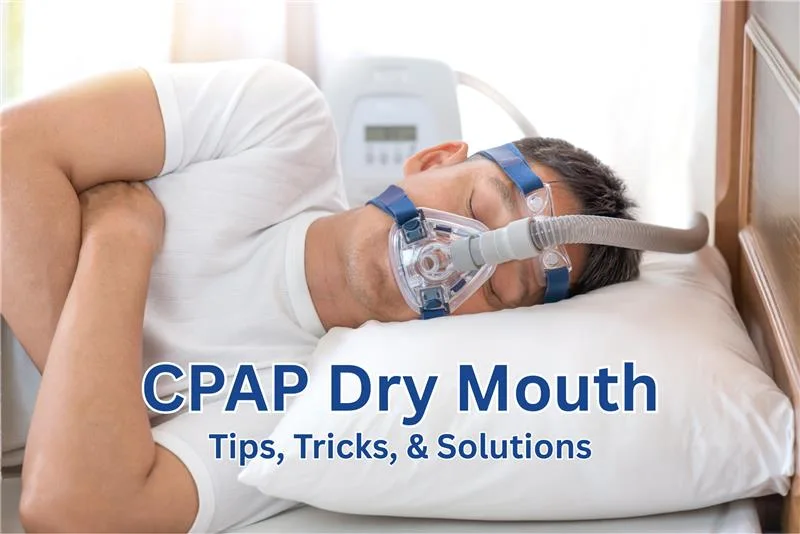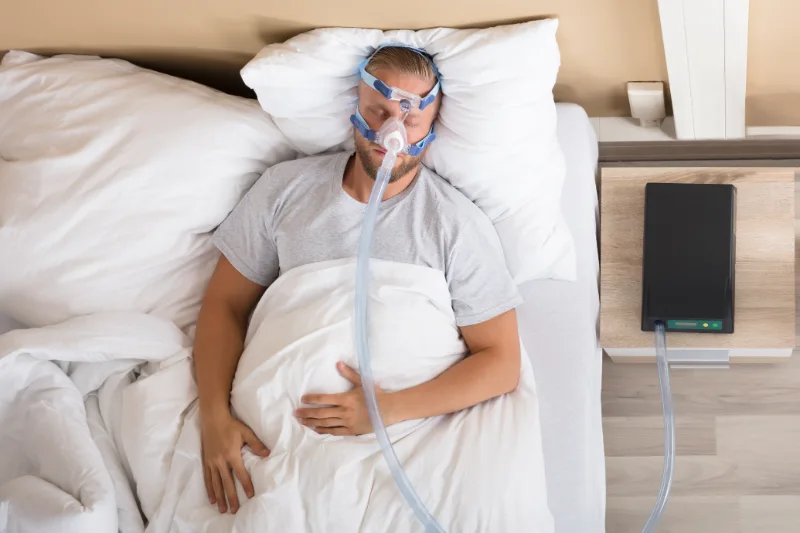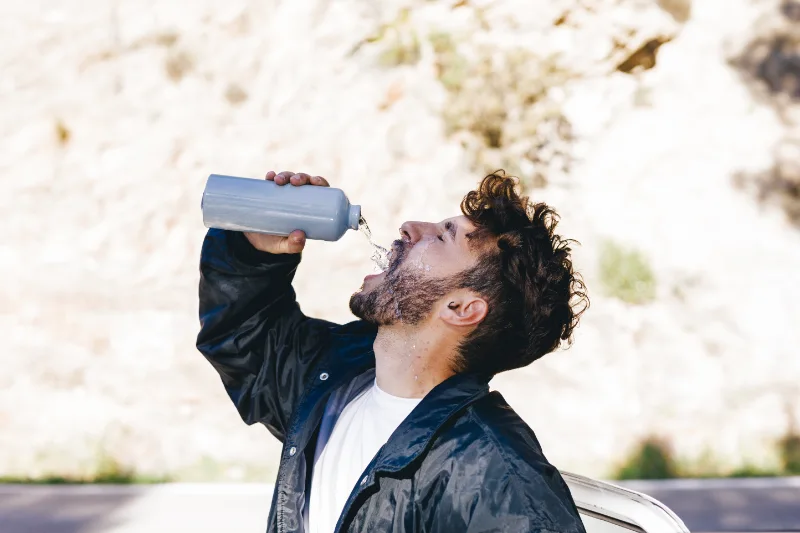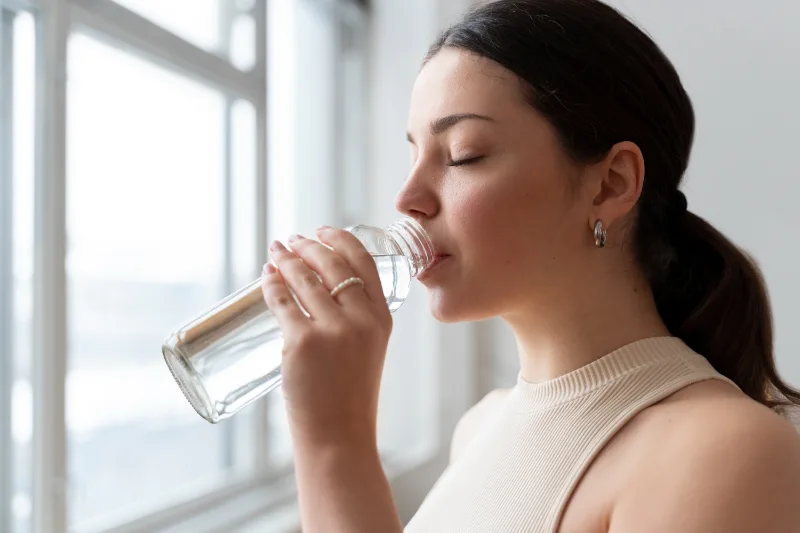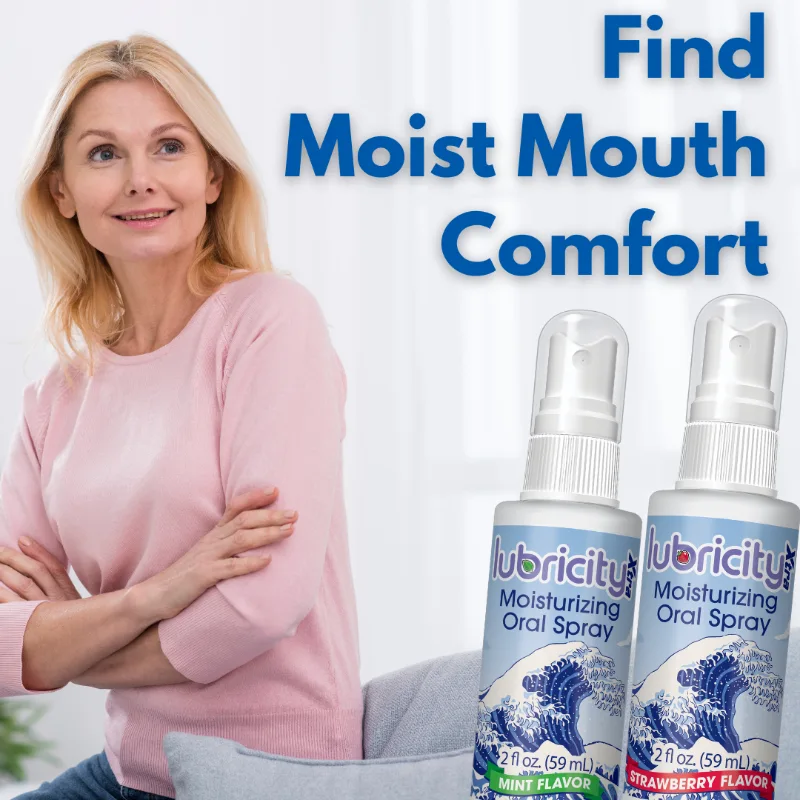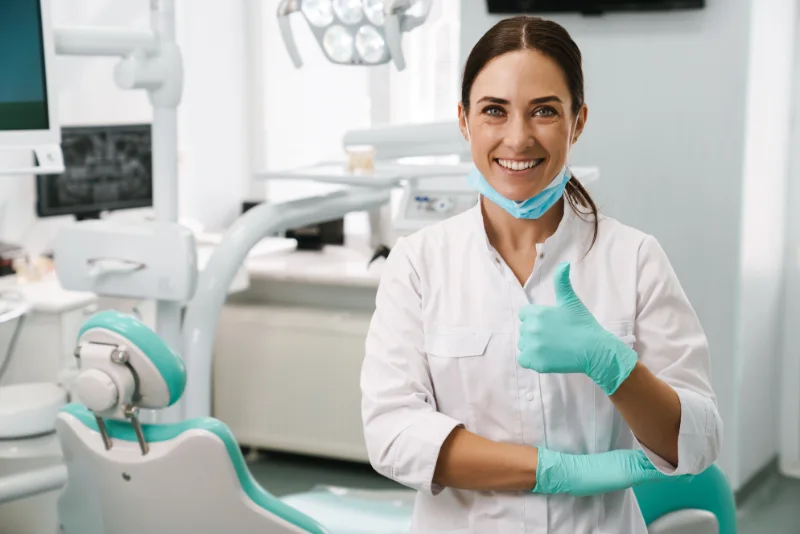According to the American Medical Association, it is estimated that there are approximately 30 million people in the United States currently living with sleep apnea, a sleep disorder which causes the airway to partially or fully collapse multiple times throughout the night and is often associated with CPAP dry mouth. This frustrating condition is known to lead to daytime tiredness along with a myriad of other serious health issues.
Continuous Positive Airway Pressure (CPAP) machines have become the gold standard for treating obstructive sleep apnea, a condition that affects millions of individuals not just in the US but also worldwide. While CPAP therapy is highly effective in maintaining open airways and ensuring restful sleep, many users experience an uncomfortable side effect: CPAP dry mouth. This condition can significantly reduce comfort and adherence to treatment protocols if left unaddressed. In this blog, we’ll explore what causes CPAP dry mouth, home remedies that may help, and how products like Lubricity Xtra® Moisturizing Oral Spray can offer lasting relief.
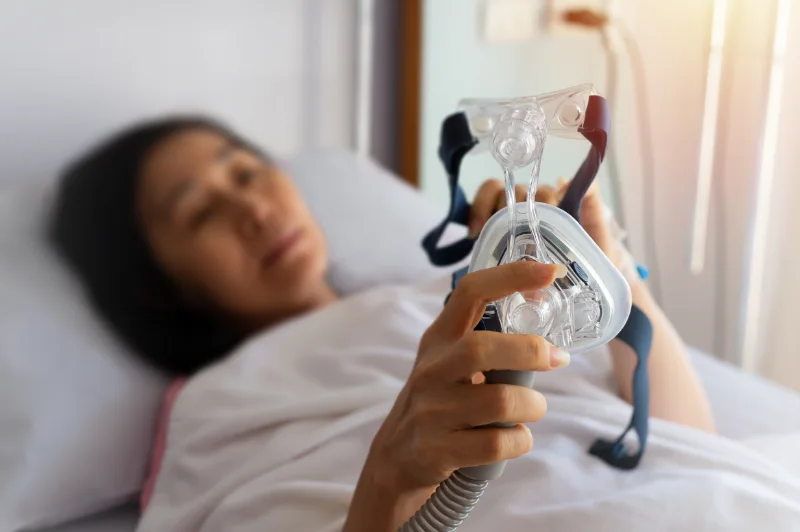
What is CPAP Dry Mouth?
CPAP dry mouth refers to the sensation of dryness in the mouth and throat that many users experience during and after using a CPAP machine, particularly throughout the night. This dryness can lead to discomfort, difficulty swallowing, bad breath, increased risk of dental problems, and poor sleep quality. Understanding the root causes of CPAP-related dry mouth is essential for finding the right solutions.
Common Causes of CPAP Dry Mouth
Several factors contribute to dry mouth while using a CPAP machine:
1. Mouth Breathing
One of the most common causes of CPAP dry mouth is mouth breathing during sleep. Individuals who breathe through their mouth, especially when using a nasal mask, often wake up with a parched mouth.
2. Poor Mask Fit
An ill-fitting CPAP mask can cause air leaks, leading to dry mouth. When the seal is not secure, air may escape through the mouth, contributing to dehydration of the oral tissues.
3. Low Humidity Settings
Most modern CPAP machines come equipped with a humidifier to moisten the air before it enters the airway. If the humidity level is set too low or the water chamber is empty, the air can feel dry and irritating, causing or worsening dry mouth symptoms.
4. Medications and Health Conditions
Certain medications, such as antihistamines, antidepressants, and blood pressure drugs, can reduce saliva production. Additionally, conditions like diabetes, Sjögren’s syndrome, and other various autoimmune diseases can increase the likelihood of experiencing dry mouth, making CPAP therapy even more uncomfortable.
Home Remedies for CPAP Dry Mouth Relief
If you’re experiencing CPAP dry mouth, there are several at-home strategies you can try to reduce discomfort and improve your sleep quality:
1. Use a Full-Face Mask
Switching to a full-face mask can help if you tend to breathe through your mouth at night. A full-face mask covers both the nose and mouth, preventing air from escaping and helping to maintain optimal airway pressure.
2. Adjust Humidifier Settings
Ensure your CPAP machine’s humidifier is filled with distilled water and the humidity setting is appropriate for your environment. Increasing the humidity can help reduce mouth dryness by moisturizing the air.
3. Add a Heated Tube
Adding a heated tube to your CPAP machine can prevent condensation (known as “rainout“) and help maintain a consistent air temperature and moisture level, reducing the risk of dry mouth.
4. Stay Hydrated
Drinking enough water throughout the day supports saliva production and helps keep your mouth moist. Try sipping water before bedtime, but avoid excessive fluids that might disrupt your sleep with numerous nighttime bathroom trips.
5. Practice Nasal Breathing
Training yourself to breathe through your nose during sleep can be beneficial. Nasal strips, saline sprays, and decongestants can help open nasal passages, making it easier to breathe through your nose rather than your mouth.
6. Limit Alcohol and Caffeine Intake
Both alcohol and caffeine can contribute to dehydration and reduce saliva flow. Limiting your intake, especially in the evening, can improve oral moisture levels overnight.
When Home Remedies Aren’t Enough: Introducing Lubricity Xtra®
While the above home remedies can provide some relief, they may not be sufficient for individuals dealing with persistent or severe CPAP-related dry mouth. That’s where Lubricity Xtra Moisturizing Oral Spray comes in as a highly effective, clinically informed solution.
Lubricity Xtra is specifically formulated to deliver soothing, long-lasting moisture to those suffering from oral dryness due to CPAP use, medication side effects, or other health-related factors. Unlike basic mouth sprays, Lubricity Xtra harnesses the power of hyaluronic acid — a naturally occurring molecule known for its superior moisture-retaining properties.
Key Benefits of Lubricity Xtra:
- Up to 4 hours of dry mouth relief per use, following an initial use period of 72 hours
- Infused with natural mint or strawberry flavor for a pleasant, refreshing experience
- Alcohol-free, sugar-free, and vegan-friendly
- Comes in a convenient 2 oz spray bottle, with a full 30-day supply when used as directed
Lubricity Xtra works by forming a soothing barrier on the oral tissues, locking in moisture and promoting comfort throughout the night. It can be used before bed or as needed to reduce dry mouth symptoms and improve adherence to CPAP therapy.
Supporting Better Sleep and Oral Health
Managing sleep apnea related CPAP dry mouth isn’t just about comfort — it’s also critical for maintaining good oral health. Chronic dry mouth can lead to a higher risk of:
- Tooth decay
- Gum disease
- Mouth sores
- Bad breath
By incorporating a targeted solution like Lubricity Xtra into your nightly routine, you can support both your sleep quality and oral hygiene. For those committed to using CPAP therapy, addressing dry mouth can make a significant difference in long-term treatment success and overall wellbeing.
Final Thoughts
CPAP therapy is essential for many people living with sleep apnea, but CPAP dry mouth can present a real barrier to comfort and compliance. Understanding the causes and trying effective home remedies is a great place to start. However, when dry mouth symptoms persist, incorporating a clinically backed product like Lubricity Xtra Moisturizing Oral Spray can offer the long-lasting relief you need. If you or someone you know are experiencing CPAP related dry mouth issues consult your physician for best solutions.
Where to Buy
Lubricity is available in-stores
Lubricity now available in-store at select Walmart locations!


